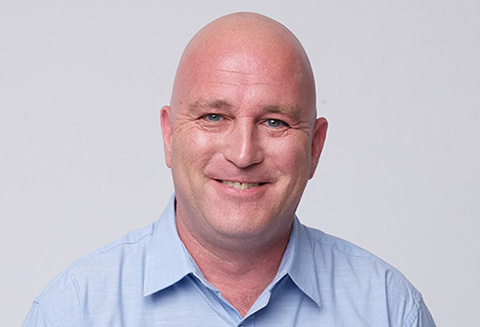Having a Healthy Pregnancy in Your 40s

Having a baby after the age of 40 has become increasingly common in the United States. According to the Centers for Disease Control and Prevention, the rate of women aged 40 to 44, giving birth for the first time more than doubled from 1990 to 2012.
“People often think 35 is the number, but there’s nothing magical about that age,” says Dr. Robin Kalish, a maternal-fetal medicine doctor at NewYork-Presbyterian/Weill Cornell Medical Center. “For many women, they want to be in the right place in life — have the right partner, be in the right mental framework, maybe be advanced career-wise — to be ready to have a baby, which might not happen before 35 or even 40.”
Kalish says an important part of having a healthy pregnancy at any age is talking to your doctor about your plans to get pregnant. With preconception counseling, your OB/GYN can help you optimize your health before getting pregnant. This increases the probability of having a healthy pregnancy by controlling chronic illnesses, helping to define a healthy diet, and reducing or eliminating bad habits like smoking or excessive drinking. For women who have an unplanned pregnancy, Dr. Kalish says seeking prenatal care is essential to staying healthy while pregnant.
Attend our upcoming session:
Join us on Wednesday, December 4 from 6 to 7 PM
NewYork-Presbyterian/Weill Cornell Medical Center
525 E 68th St New York, NY 10065
Suite J-130 (first floor, behind the Information Desk)
“The vast majority of healthy women over 40 have healthy pregnancies and give birth to healthy babies. Having said that, if mom has high blood pressure, diabetes, or other health issues, it can affect the mom’s overall health and the baby,” Dr. Kalish says. “If women get good prenatal care, both mom and baby can have great outcomes.”
The Division of Maternal-Fetal Medicine at NewYork-Presbyterian/Weill Cornell Medical Center provides care to women who are pregnant or are considering becoming pregnant that are at risk for complications or high-risk pregnancies. The maternal-fetal medicine (MFM) specialists care for women with chronic health issues like high blood pressure, diabetes, and heart disease, as well as otherwise healthy women at increased risk due to other conditions like multiple births, recurrent pregnancy loss, or previous premature labor.
Dr. Kalish recommends that women having their first child after 40 consider seeing an MFM doctor or an OB/GYN with experience caring for older women.
“There are things we need to watch out for with patients over 40,” she says. “We have to support them in a different way.” With this special patient population in mind, Dr. Kalish and the team of MFM doctors at NewYork-Presbyterian/Weill Cornell have launched the Prenatal 40 program, an education and support service for women 40 and over who are pregnant or planning to become pregnant. The program connects women with specialists who can dispel myths, answer questions, and help coordinate care.
“It’s educational, but it’s also an opportunity to build a community with our patients,” she says. “Many of our patients are in groups online because they want to know there are other patients out there like them with similar questions. This is an opportunity to connect with women in New York are 40-ish that are pregnant or trying to get pregnant.”
“We know patients want more than just going to the doctor for medical advice. If we can help be a resource for that, then why not,” she says.
The Prenatal 40 program held its first information session in October with plans to host similar events quarterly. The sessions include fertility specialists, maternal-fetal medicine doctors, OB/GYNs and obstetric nurses who can answer questions related to pregnancy and women’s health.
“We should embrace pregnancy at every age. If you happen to get pregnant or decide you want to have a baby at 40, we’re here to take care of you and make sure that everything is done to optimize your health and wellbeing,” she says.
To learn more about maternal-fetal medicine, visit nyp.org/womens. To find a MFM specialist or an OB/GYN, call 877-697-9355.





